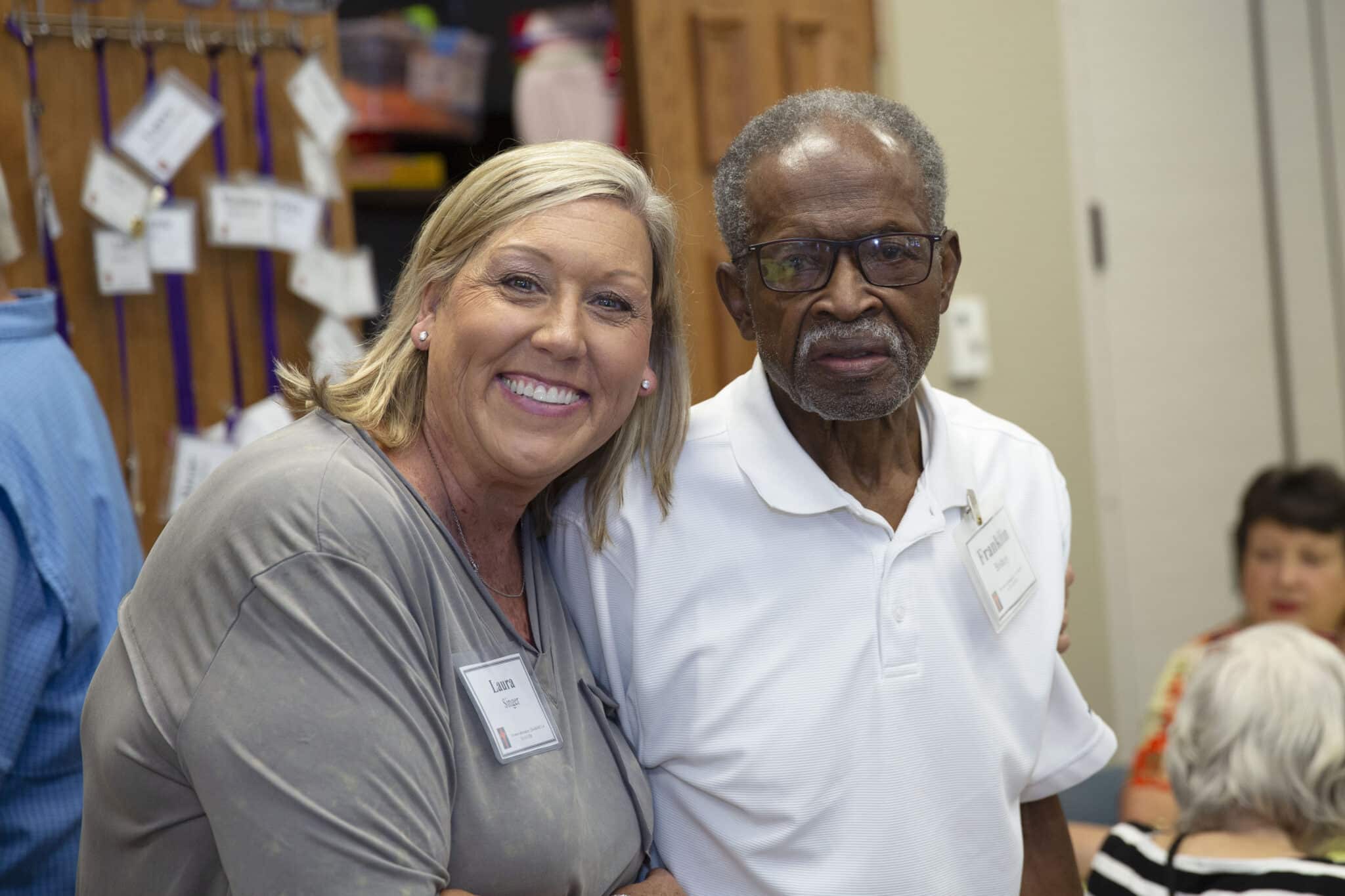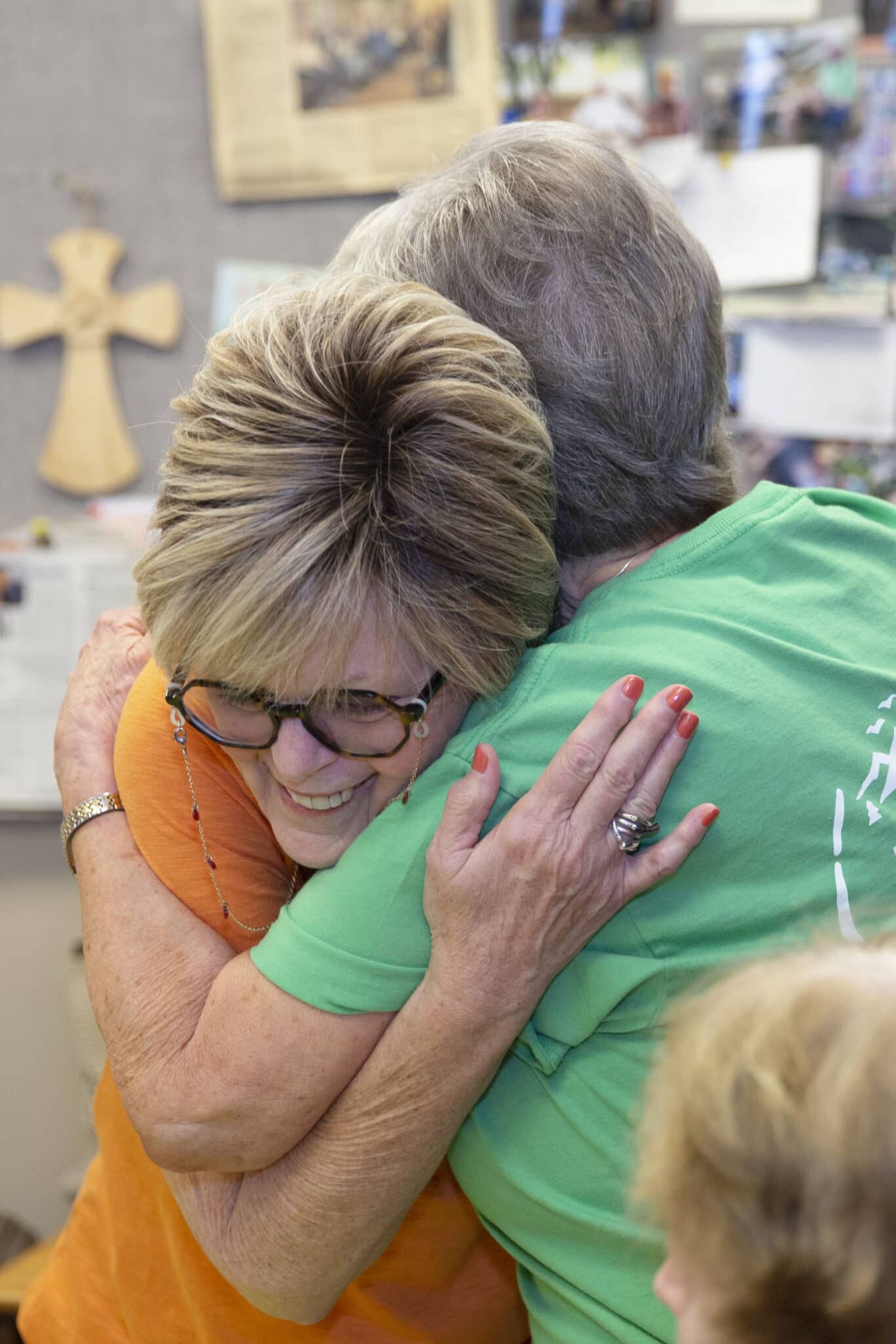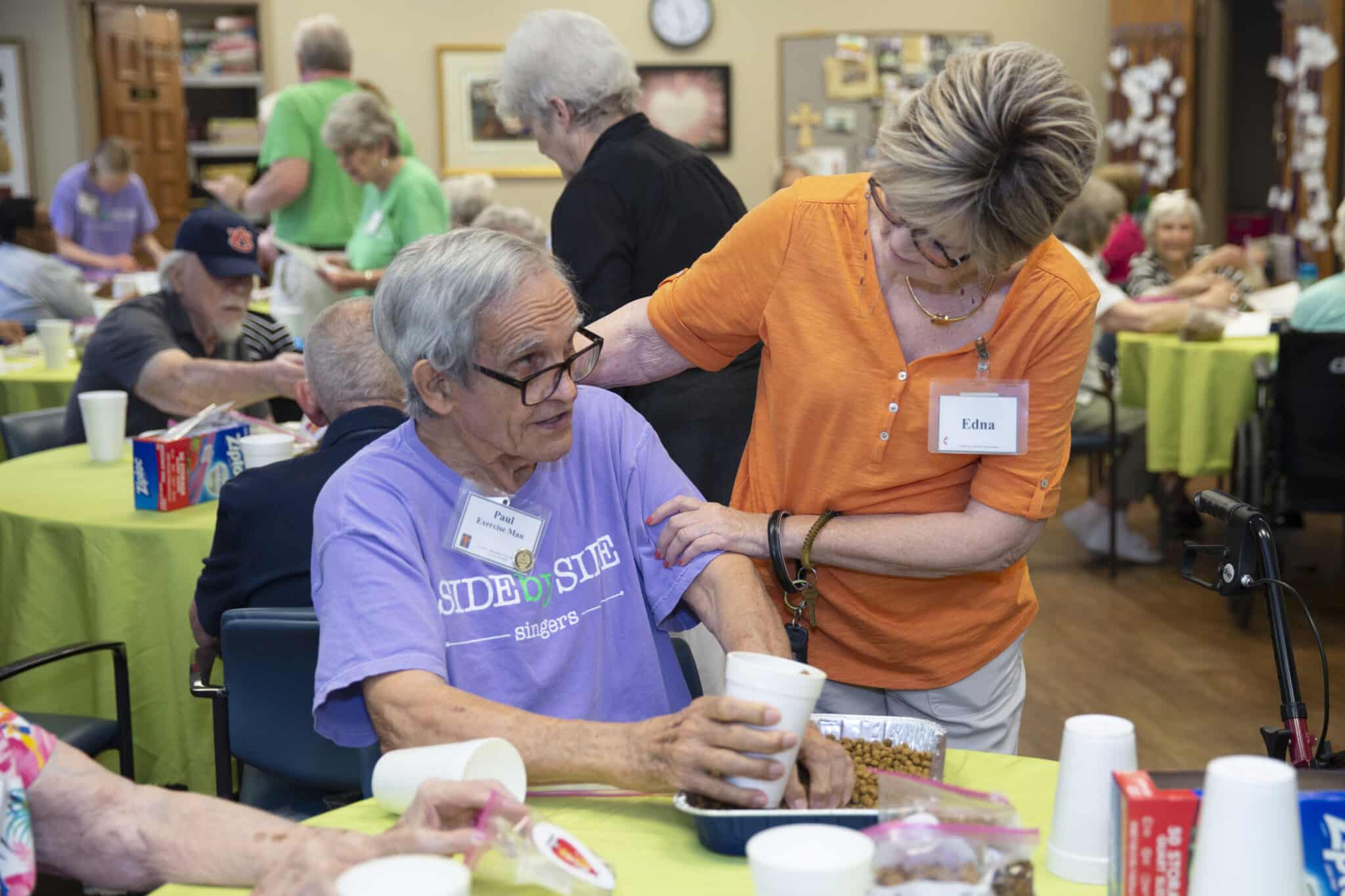3-Part Participant Benefit
True Respite for ALL
“Respite” is defined as a “short period of relief from something difficult or unpleasant,” so it is quite fitting for the friendship revolution we have begun here. Not only does our ministry offer Respite for care partners, but also for the person living with Alzheimer’s and dementia. And, the Respite model does the same for our armies of volunteers who crave a break from the monotony of our fast pace, everyday life.
Caring for the Care Partner
According to the Population Reference Bureau, most people living with dementia do not live in nursing homes or residential care facilities. Instead, they continue to live at home in traditional community settings. The Bureau also shares that family members provide the most care for people living with dementia – one-third of caregivers are informal, unpaid individuals.
Those who care for a person living with Alzheimer’s or another dementia face unique challenges and must provide increasing levels of supervision. Many care partners are unable to leave their loved ones at home alone but do not yet need medical intervention or cannot afford to hire in-home help. In addition, there is often growing social isolation for both loved one and caregiver as the disease advances.
To address the growing numbers of people living with Alzheimer’s/dementia and the stress of caregiving, we need new systems to allow people to remain in their homes longer while reducing burnout. Respite For All’s community volunteer model of care is a direct response to this need, and helps reduce isolation, improves the quality of life, and shoulders some of the burden for caregivers.
Participant Engagement
Respite for All offers our friends structured activities that include music, art, games, and exercise – comprehensive forms of engagement which allow the participant to tap into their creativity. Respite Communities help participants enjoy shared experiences, camaraderie, and the building of new relationships. In addition, Respite offers a place where our friends can still participate in service projects and give of themselves to the community. Our program helps those living with dementia stay in their home longer and live a better quality of life.
Volunteer Benefits
Respite is operated almost exclusively by trained volunteers. They are the heartbeat of our program. They keep the room filled with new faces and new energy. Our volunteers don’t just dramatically impact Respite but are just as positively affected by their involvement. We have found that when volunteers are transformed and find purpose, they are the most prominent advocates for recruiting new team members. Volunteering in a Respite Community is a shared responsibility, not a one-on-one responsibility. The team carries the load. Our volunteers are fulfilled by:
- The hands-on ministry and service they provide to others in a meaningful way
- They feel the effect of bringing joy and significance to a difficult situation
- They enjoy a day filled with laughter and friendship
- They may feel that they have honored someone from their past or present who has lived with Alzheimer’s or dementia
- They see the beauty in blurring the line between volunteers and participants, creating a no-label atmosphere
- There is no guilt in not being able to work. Volunteers do not have to commit to a set schedule. They come when they can and answer the schedule email when available
- Retired volunteers reduce their post-retirement isolation and make new friends



